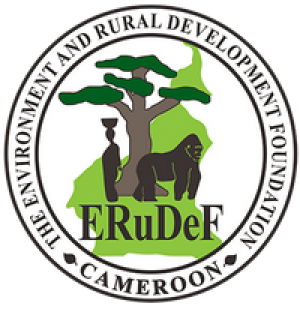Press Review
[one_third] [/one_third]
[/one_third]
Cameroon Not Capable of Producing Biodegradable Plastic
Following the government’s decision to ban the production and use of plastic bags in Cameroon which kicked off April 24, The Green Vision Newspaper reported a story saying that investigation carried out by the Ministry of Environment says there are no machines capable of producing biodegradable. According to the paper, an official of the South West Regional Delegation of Environment, Protection of Nature and Sustainable Development(MINEPDED) has said plastic wrappings that went into circulation after the April 24 ban are fake and the Ministry will spare no effort in seizing all such plastics. “What was written on the plastic was plastique oxodegradable. This does not mean the plastic can degrade, it means after some time, the plastics fragments into pieces and this can even more dangerous to the environment. What those retailers did is they simply took their old stock and stamped those messages on them because they did not want to lose their stock”. The paper went forth to say the official said the months of grace have passed and anyone caught will face the consequences of the law.
“On the 24 of October 2012, The Minister met with plastic package producing companies and asked them how long they could take to release their stock and they said 18 months and signed agreements to that effect. This was the period of grace and comparing to other countries it was even long. In Gabon producers were given 6 months and it worked”
She explained that according to the joint arête by Ministry of Environment and Commerce these 18 months were meant for sensitization after which the repressive phase will start. “Normally after these 18 months all plastics less than or equal to 60 microms are forbidden to circulate and as such we go round to seize any. For those above 60 microms, manufacturers have to get an environmental permit signed by the Minister” She said they have been going round to seize all plastics less than 6o microms and this activity will continue. “We have been to all the major markets around the Southwest and seized all the plastic packages we saw. We will be visiting shops today to seize more plastics. This decision has come to stay so Cameroonians should try to get used to it. By the way 20 years ago there were no plastics and we still survived”. Plastics seized are destroyed through piercing, weighed and given out free to recycling companies to produce more useful plastics like ‘chang” shoes, tyres,containers of rubbing oil etc.
Quizzed about the lack of substitute she said “the Ministry of Environment is not the one who was producing non-biodegrable packages, neither will it be the one to produce biodegrables. Companies are responsible for that. We are only here to make sure the laws are implemented and our environment is protected. I admit as for now there are no machines that can produce biodegrables in Cameroon, but not all plastics have been banned. We have plastics more than 60 microms circulating like sacks and motors. Other forms of packaging include raffia bags, caton paper and plantain leaves.” She lauded some vendors in Buea town market who are already adapting by using papers to tie goods and called on the others to follow.
The paper equally reported that a new black market has emerged “We have some women who come as early as 6 am to sell us plastics. They sell them at cut throat prices because they know the demand now exceeds supply. A packet of white wrappins which we use to buy for 100 FCFA, we now buy from these dealers at 250FCFA. A trader said. “The other types like black, multicoloured have also witnessed a sharp increase. After all we do not have a choice, if we do not have these packaging, we will not be able to sell”
24-year-old ‘Caught’ As New Fon of Fontem
The Green Vision also reported that following the passing on to eternity of the Fon of Lebang , HRH Senator, Fontem Njifua, his 24-year-old son has been ‘enthroned’ as the new Fon of the Lebang. A Masters student of Accounting, the new Fon HRM Asabatong Fontem was crowned Friday May 9, 2014. The paper reported that besides the numerous economic, political and infrastructural challenges, he will have to make true his father’s promise of initiating many more tree planting projects in his kingdom in order to prevent erosion and landslides, given that Fontem remains one of the areas whose topography is fragile and prone to many natural disasters such as the 2003 Wabane landslide that left 23 dead. He will equally have to lend efforts towards the gazettement process of the proposed Mak-Betchou Chimpanzee Sanctuary initiated early this year by the Environment and Rural Development Foundation (ERuDeF).
Curbing Deforestation With Cooking Bag
A specially designed bag called “The Wonderful Bag” has been introduced to low and high income households in Buea Subdivision to enable them cook while saving time, fuel and money. The bag that is made from cloth is filled with an insulating material called polystyrene that conserves heat or cold for a long time. It is an initiative of the NGO Pro Climate International and the bag is intended to scale down the felling of trees for firewood around the Mount Cameroon National Park. The simple but efficient bag was introduced to women’s groups, gender activists and members of the public at Bongo Square in Buea on April 09, 2014. After carrying out research in villages around Cameroon, Pro Climate International found out that, women have difficulties meeting their fuel needs in the kitchen. The NGO thus saw the need to address the fuel problem while ensuring that forests are preserved.
Compiled by Regina Fonjia Leke
